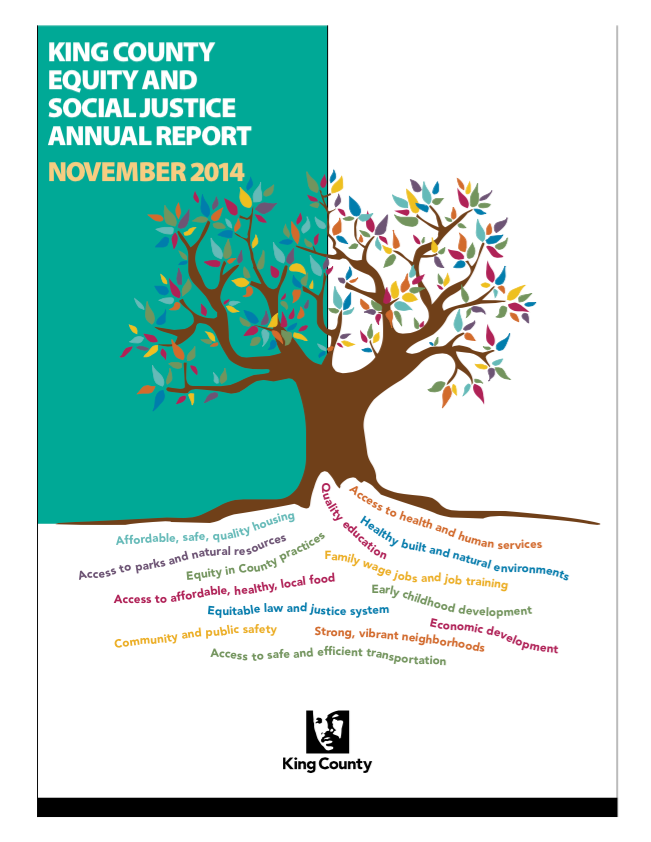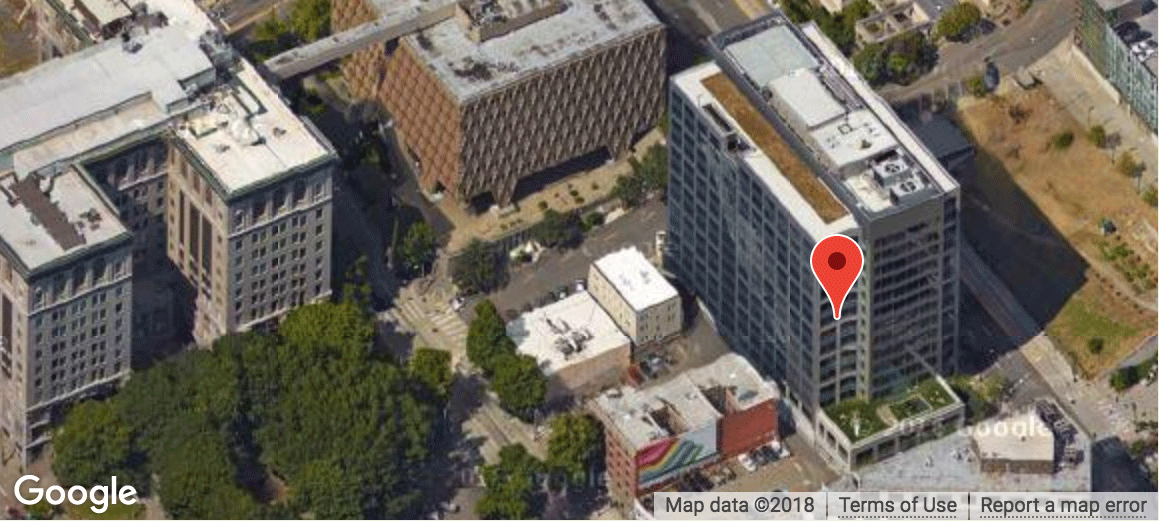Report shows King County is taking action to advance regional prosperity through equity and social justice
Summary
King County's 2014 Equity and Social Justice Annual Report shows how County government, led by Executive Dow Constantine and other elected officials, is working to keep this region competitive by advancing equity and social justice that can help each of our 2 million residents reach his or her full potential.
Story
A new report shows how a focus on equity and social justice, led by King County Executive Dow Constantine, is being effectively integrated into all aspects of County operations—advancing the goal of long-term prosperity for the region by ensuring that every person has a fair shot at success.
"The reaction to recent events, whether in Ferguson or New York City, has again laid bare the ongoing racial divide that burdens not just one region of our country, but the length and breadth of these United States,” said Executive Constantine. “Our region’s ability to remain prosperous depends on each of our two million residents being able to reach his or her full potential.
"Here in King County, we have already been asking the tough questions about what we can do today, and taking long-term actions that can move us toward fulfillment of our founding ideal that all are created equal and entitled to equal justice under law,” said the Executive.
According to the 2014 King County Equity and Social Justice Annual Report, places with greater social and economic equity enjoy stronger economic growth and overall prosperity. Within 20 years, says the report, the majority of King County residents will be people of color.
Yet the report reveals a disturbing inequality of opportunity that persists in King County, and reveals that a person’s quality of life is greatly impacted by where they live, and by their race. For example: average household income in one ZIP code can be $100,000 less than in another just a few miles away; average life expectancy can be 10 years shorter in one place than another; and unemployment among African Americans is twice what it is for whites.“King County’s equity and social justice work is providing a critical framework and tools to help ensure that low-income families have access to communities in which they can succeed, with a blend of transportation options, healthy schools, access to jobs, and a mix of housing types,” said Alan Berube of The Brookings Institution in his foreword to the report.
In his foreword to the report, Dr. Manuel Pastor, director of the Program for Environmental and Regional Equity at the University of Southern California, said innovative solutions to the nation’s social inequity will come from local areas such as King County.
“A key testing ground for new ideas and new alliances is America’s metropolitan regions,” said Dr. Pastor. “It is here that we find new experiments in combining cluster-based economic strategies with workforce development, transit development with affordable housing, climate adaptation with environmental justice.”
Among the Executive’s actions documented in the report to build social equity are:
- Increasing access to affordable health care: Executive Constantine led an “all-hands-on-deck” approach that mobilized County agencies and community organizations to help nearly 200,000 people in King County sign up for health coverage under the Affordable Care Act, cutting the uninsured rate by more than one-third. The enrollment outreach targeted uninured populations with the greatest needs, such as Latinos, African Americans, and limited-English speakers in South King County—creating greater access to critical preventative services such as vaccinations, screenings for cancer or mental-health issues, and treatment for chronic conditions.
- Creating a nationally-recognized low-income bus fare: Executive Constantine directed that all County agencies analyze the disparate impact of their budget proposals on lower-income residents, communities of color, and immigrants and refugees when developing budgets. One outcome of this “equity lens” was his proposal for creation of a reduced bus fare at King County Metro Transit for lower-income riders, a measure later adopted by the County Council and now set for launch in March of 2015.
- Creating equity in King County workforce and workplace: Through the Executive’s new Employer of the Future initiative and the 2014-16 Equal Opportunity and Affirmative Action Plan, King County is developing a framework for ensuring greater equity, diversity, and opportunity in its changing workplace.
- Creating opportunities where people live: Based upon research which shows the place where one lives has a dramatic impact on his or her trajectory in life, the Executive and The Seattle Foundation launched Communities of Opportunity—an initiative to improve health, racial, and socioeconomic equity in communities. With an investment of $3.7 million over the next five years, the initiative will identify specific needs in three targeted communities, and address such issues as access to healthy foods, affordable quality housing, and equity in zoning and land use.
The report also previews two new equity efforts:
- Launching Best Starts for Kids: Executive Constantine recently announced Best Starts for Kids, an initiative to invest in early childhood development to ensure that every baby born and every child raised in King County has a strong start in life and enters adulthood ready to succeed. By investing in evidence-based programs early in life that are proven to deliver positive outcomes, the initiative aims to decrease demand for costly criminal justice services.
- Measuring outcomes and accountability: Executive Constantine proposed funding to staff and support King County’s equity activities in his biennial budget. The County Council adopted the funding and called for creation of a new Office of Equity and Social Justice next year. This office will develop a strategic plan specific to equity and social justice that will measure outcomes and accountability, help ensure that limited resources are focused on areas with the greatest need, and establish ongoing ways to better work with local residents and community partners.
Relevant links
- 2014 King County Equity and Social Justice Annual Report PDF
- INFOGRAPHIC: Building equity and opportunity in King County Image
- Best Starts for Kids home page
- New approach to building social equity led by The Seattle Foundation, King County
- Reduced-fare program for lower-income Metro bus riders
Quotes
The reaction to recent events, whether in Ferguson or New York City, has again laid bare the ongoing racial divide that burdens not just one region of our country, but the length and breadth of these United States. Our region’s ability to remain prosperous depends on each of our two million residents being able to reach his or her full potential. Here in King County, we have already been asking the tough questions about what we can do today, and taking long-term actions that can move us toward fulfillment of our founding ideal that all are created equal and entitled to equal justice under law.
King County’s Equity and Social Justice work is providing a critical framework and tools to help ensure that low-income families have access to communities in which they can succeed, with a blend of transportation options, healthy schools, access to jobs, and a mix of housing types.
A key testing ground for new ideas and new alliances is America’s metropolitan regions. It is here that we find new experiments in combining cluster-based economic strategies with workforce development, transit development with affordable housing, climate adaptation with environmental justice.
For more information, contact:
Frank Abe, frank.abe@kingcounty.gov, 206-263-9609

 Translate
Translate


